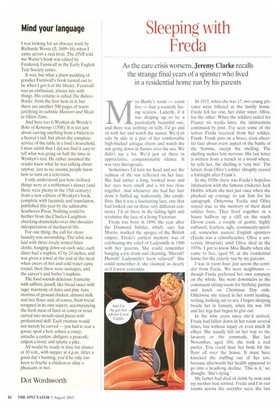Mind your language
I was looking for an obscure work by Richarde Weste (fl. 1609-16) when I came across a real treat. The DNB told me Weste's book was edited by Frederick Furnivall in the Early English Text Society series.
It was, but what a plum-pudding of goodies Furnivall's book turned out to be when I got it at the library. Furnivall was an enthusiast, always late with things. His volume is called The Babees Booke, from the first item in it, but there are another 500 pages of tracts justifying its subtitle Manners and Meals in Olden Time.
And here too is Wynkyn de Worde's Boke of Keruynge (1508). It is not just about carving anything from a bittern to a beaver's tail, but about the complete service of the table in a lord's household. I must admit that I did not find it easy to tell what was going on half the time in Wynkyn's text. He rather assumed the reader knew what he was talking about anyway, just as we assume people know how to turn on a television.
I only understood just how civilised things were at a nobleman's dinner (and there were plenty in the 15th century) from a new edition of Wynkyn's book, complete with facsimile and translation, published this year by the admirable Southover Press. Nothing could be further from the Charles-Laughtonchucking-drumsticks-over-the-shoulder interpretation of mediaeval life.
For one thing, the call for clean laundry was astonishing. The table was laid with three lovely ironed linen cloths, hanging down on each side; each diner had a napkin, 42 by 24 inches, and was given a towel at the end of the meal when ewers of hot and cold water came round; then there were surnapes, and the carver's and butler's napkins.
The food sounds delicious: frumenty with saffron; jussell, like bread sauce with sage; marmony of dates and pine nuts; mortrus of ground chicken, almond milk and rice flour; and, of course, fresh bread wrapped in its own napery, accompanying the fresh meat of fawn or coney or trout carved into mouth-sized pieces with professional skill. Each creature would not merely be carved — you had to rear a goose; spoil a hen; unlace a coney; untache a curlew; disfigure a peacock; culpon a trout; and splatte a pike.
All would be ready in time for dinner at 10 a.m., with supper at 4 p.m. After a good day's hunting, you'd be only too keen to fruche a chicken or allay a pheasant or two,


































































 Previous page
Previous page